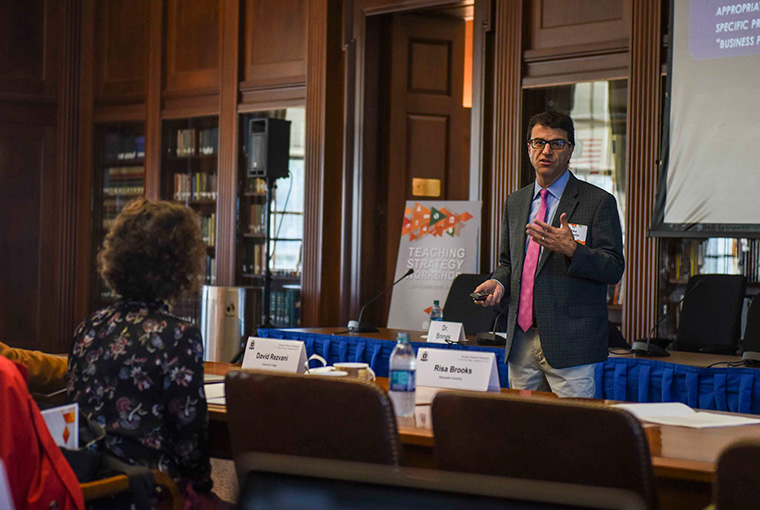U.S. Naval War College Hosts Workshop on Teaching Strategy

NEWPORT, R.I. -- In what one scholar called a “golden age” for the field, the U.S. Naval War College gathered scholars Sept. 26-27 for a workshop on the state of the art in teaching foreign policy strategy.
“We are living in a golden age of grand strategy education,” said Hal Brands, global affairs professor at Johns Hopkins University, describing the discipline as a growth industry that is also creative and vibrant.
“And we are living in a particularly critical moment for grand strategy education and research because of the high-stakes debates that are happening about the future of American foreign policy – not just in academia but in the broader political sphere,” said Brands, also a scholar at the American Enterprise Institute, delivering a talk on the conference’s first day.
The Naval War College has been hosting workshops on teaching strategy for at least a decade, said organizer John Garofano, a professor in the college’s Strategy and Policy Department.
“The goals are to bring together teachers from the civilian and military higher-education worlds to create a network, to talk about best practices and to share ideas for teaching,” Garofano said in an interview.
The focus of the event, the first of its kind in Newport since 2016, was new teaching methods.
Scholars from around the country discussed differences between civilian and military approaches, how to teach the economics of strategy and which new publications and techniques should be incorporated.
Scholars who teach at U.S. military staff colleges talked about the different methods used by the individual services.
John Maurer, Naval War College professor of strategy, noted that teaching in Newport is still grounded in the classics, such as the writings of Carl von Clausewitz, Thucydides, Sun Tzu and Alfred Thayer Mahan.
“We want to highlight that strategy is not targeting. Strategy is about achieving an overall national objective or effect,” Maurer said.
“One of the bumper stickers we have here is, ‘There’s more to war than warfare,’” he said. “You have to get outside the operational realm. You have to understand the context in which war takes place.”
The second day was devoted to how business schools have taught strategy over the decades, including how case studies can play a role.
Michael Roberto, management professor at Bryant University in Smithfield, used a case study on Planet Fitness and the exercise industry to demonstrate the technique.
“It’s about giving students a framework to analyze a messy environment,” he told the group, adding that focusing on tension points in a scenario makes for some of the best teaching.
“A case doesn’t teach well if it’s a case about best practices,” Roberto said. “Tension makes for learning. The tension around, ‘Is it ethical?’ The tension around, ‘Is it sustainable?’ When there’s not a clear answer on those questions is what I would argue is rich learning.”
For more information about the Naval War College’s Strategy and Policy Department, go to the department website: https://usnwc.edu/Faculty-and-Departments/Academic-Departments/Strategy-and-Policy-Department
